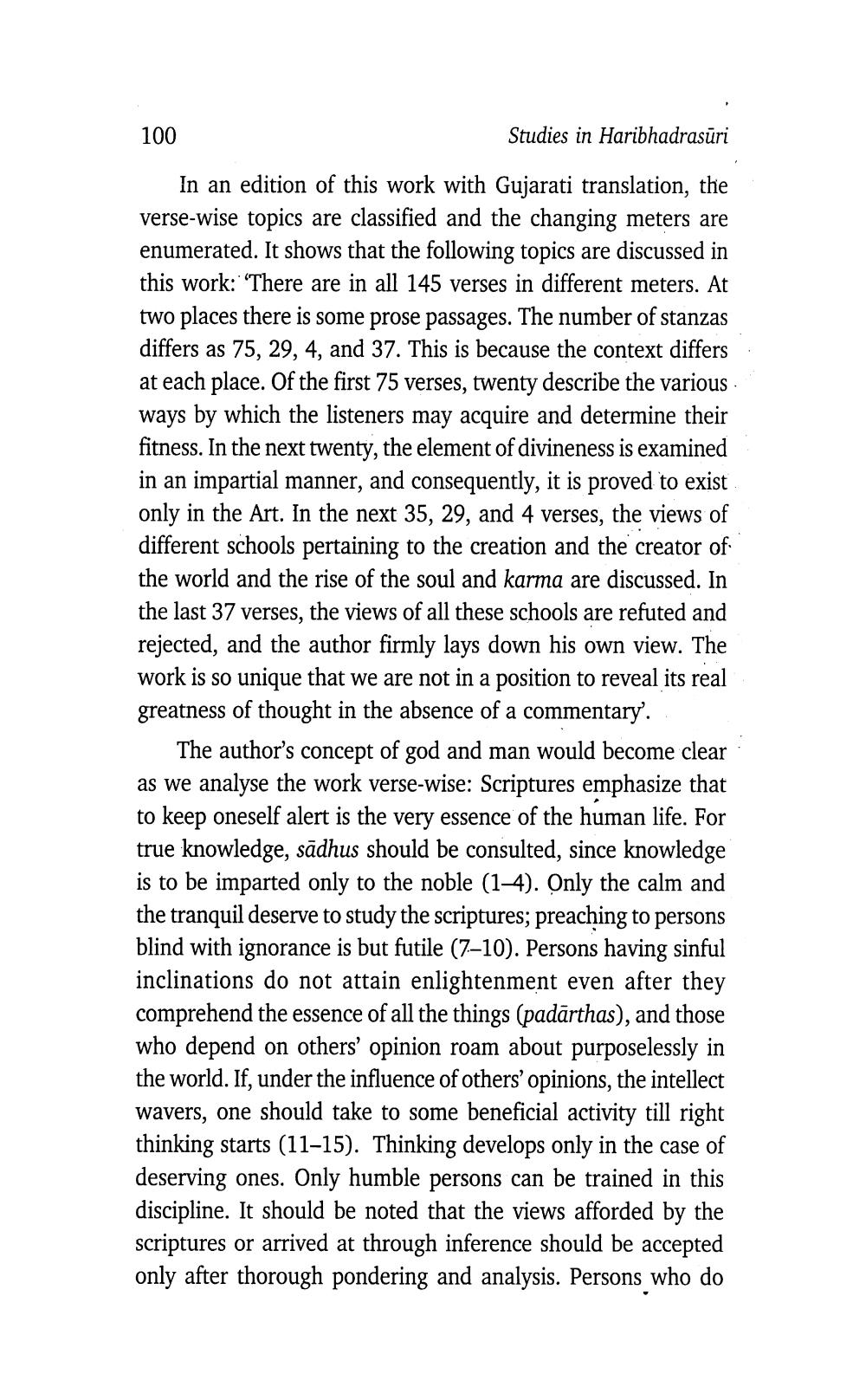________________
100
Studies in Haribhadrasuri In an edition of this work with Gujarati translation, the verse-wise topics are classified and the changing meters are enumerated. It shows that the following topics are discussed in this work: 'There are in all 145 verses in different meters. At two places there is some prose passages. The number of stanzas differs as 75, 29, 4, and 37. This is because the context differs at each place. Of the first 75 verses, twenty describe the various ways by which the listeners may acquire and determine their fitness. In the next twenty, the element of divineness is examined in an impartial manner, and consequently, it is proved to exist only in the Art. In the next 35, 29, and 4 verses, the views of different schools pertaining to the creation and the creator of the world and the rise of the soul and karma are discussed. In the last 37 verses, the views of all these schools are refuted and rejected, and the author firmly lays down his own view. The work is so unique that we are not in a position to reveal its real greatness of thought in the absence of a commentary'.
The author's concept of god and man would become clear as we analyse the work verse-wise: Scriptures emphasize that to keep oneself alert is the very essence of the human life. For true knowledge, sādhus should be consulted, since knowledge is to be imparted only to the noble (1-4). Only the calm and the tranquil deserve to study the scriptures; preaching to persons blind with ignorance is but futile (7–10). Persons having sinful inclinations do not attain enlightenment even after they comprehend the essence of all the things (padārthas), and those who depend on others' opinion roam about purposelessly in the world. If, under the influence of others' opinions, the intellect wavers, one should take to some beneficial activity till right thinking starts (11-15). Thinking develops only in the case of deserving ones. Only humble persons can be trained in this discipline. It should be noted that the views afforded by the scriptures or arrived at through inference should be accepted only after thorough pondering and analysis. Persons who do




